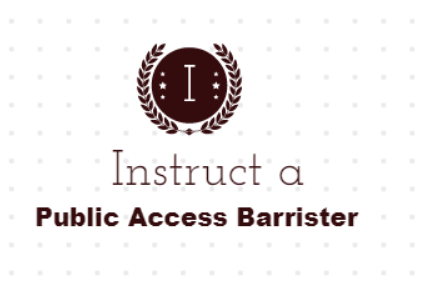Whilst the goal is ultimately to be the first name that comes to mind when a Solicitor or general counsel needs a Barrister, there is huge value in being the second person on their list too.
Every profession has its own unique attitude and culture towards Business Development. Some professions will favour a direct approach to business development and directly asking “can I have your business” is the norm, others will have a more indirect approach, with the focus on being known, trusted and hoping to be front of mind when clients have a need.
Barristers and their Chambers sit at the extreme of the “indirect” approach. This is hardly surprising given it is only 20-something years since “touting” for business became legal for Barristers. For many professions 20 years is plenty of time for a culture to be transformed, however, Barristers and their Chambers are bound by centuries of tradition. Even in today’s world a barrister only needs to show a little too much interest in growing their practice to earn a reputation of being labelled “a little too commercial”.
Yet, as with many other areas of professional services, Barristers and their Chambers are under pressure to change like never before. Some might say that there is a perfect storm of pressures that are forcing this change.
Government changes are having a profound effect on those Barristers who’s workstream is biased towards publicly funded instructions. To counter the decline in fees from legal aid work, many are actively working to increase the proportion of work that comes from other sources. Whether it is attending more legal dinners or running more events or training for commissioning solicitors, Barristers and Chambers are becoming more proactive in being seen as an “alternative” option should a firm’s existing Barrister or Chambers let them down. This means that solicitors increasingly have a range of options open to them when they look to engage a Barrister; should their existing preferred barrister fail to deliver the service, they are only a call away from another Barrister who can give them what they want.
Another change and more current development for Barristers is the growth of in-house legal teams. In-house legal teams are increasingly confident in engaging Barristers directly and, in doing so, they are able to build their own network of counsel that can give them the advice they desire, when they want it, without the extra effort and expense of working through a Solicitor. The impact of this change will mean that Barristers and Chambers will be able to rely less on single relationships with Solicitors that deliver them large volumes of work, instead, they will need to have a far wider range of relationships.
So, how can a barrister grow their practice without being seen as “touting” or being too commercial?
Be easy to deal with
We are a long way past the time when a Solicitor would send a birthday card to a Barrister as a reminder it is a year since they asked for their advice, however many Barristers still believe how their clients feel about the service they receive is secondary to the outcome of the case. In a market where people have no choice, this approach works, however in a market where clients can choose who they use, they want both legal capabilities and to feel good through the process. When speaking to a Barrister recently about his approach to business development it can be summarised as “I return messages promptly, I am well planned in court, I write detailed court notes and when dealing with the Solicitor’s clients I park my ego and show concern and interest.”
Be the number 2
This may be a difficult concept for a profession that is all about winning. Whilst the goal is ultimately to be the first name that comes to mind when a Solicitor or general counsel needs a Barrister, there is huge value in being the second person on their list too. When a profession takes an indirect approach to business development, a Barrister is unlikely to call up a Partner in a Solicitors and say, “stop using XXX and use me instead”. So, the mindset of the Barrister needs to be focused on being the number 2 name in the Solicitor’s mind. Meaning if number 1 delivers a bad service or are simply unavailable you are the person they turn to. How to do this? Build a reputation for being technically good and easy to deal with and stay in contact; consciously seek them out at industry events, share industry, market or legal insights over email (e.g sharing articles).
Get organised
I do not have to convince you that being organised before a court appearance is important. However, the same reasons stand when it comes to organising your business development. A lack of organisation and planning can lead to missed opportunities and a low return on networking activities. Barristers only really need two lists when organising their business development activity. The first is of their existing clients, the second is a list of people who they would like to be their clients. When looking at the first list, you should ask yourself: “Which of these could engage me more often?” For the second list, you should ask: “What number call would I be?” Whilst there are other questions you could ask, these two will get you started when prioritising and planning your network nurturing activity.
The suggestions above will yield you more direct and indirect work in the longer term. But there is one thing you can do that will deliver results and improvement to your business development quickly. Recognise the importance of your Clerks; treat them as if they are your clients too. They have their own networks that yield briefs, they also have the ability to provide you with work that comes into the Chamber. Whilst there are general principles of fair allocation of new briefs, Clerks do have some discretion. It may be that your technical expertise means that they will forward work irrespective of how they feel about you, yet just like every customer if they have a choice in who they can use, they will use the person that they like most and feel will deliver the best service to the client.
In short, the landscape that the Barristers and Chambers operate in is changing. It may be changing slowly, but it is changing. The question for every Barrister is how do I adapt to the change?
By Alex Moyle, business development, sales expert,
Alex Moyle is a business development, sales expert and author of Business Development Culture – taking sales culture beyond the sales team, published by Kogan Page and available on Amazon. Find out more: https://alexmoyle.co.uk/




